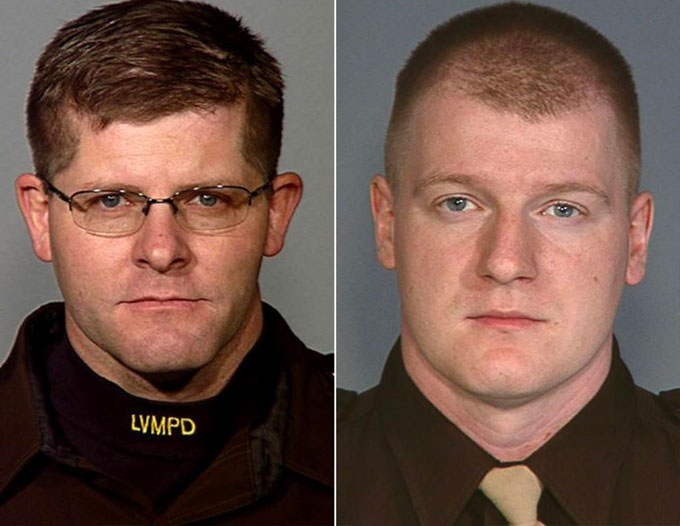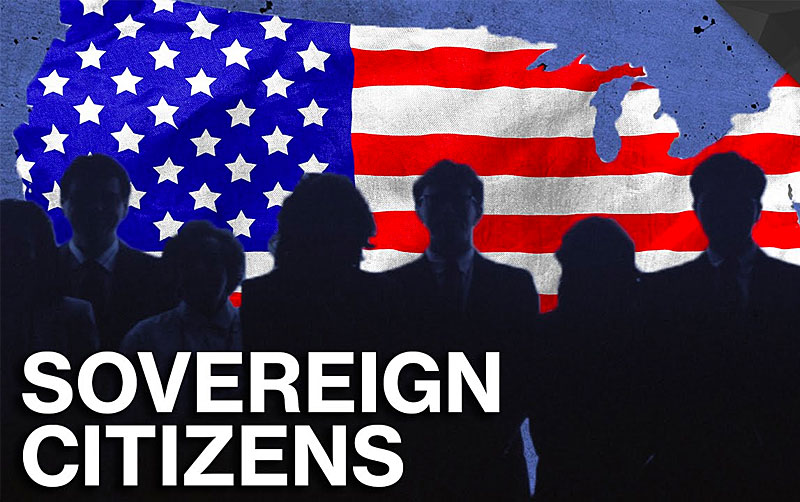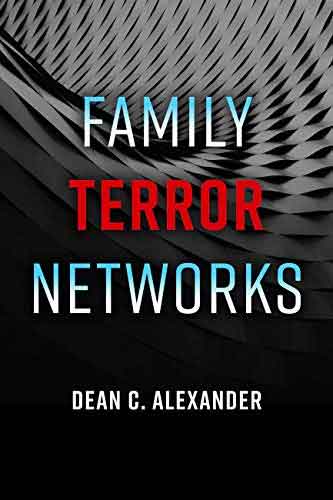
Guest OpEd by Dean C. Alexander, Director, Homeland Security Research Program and Professor at the School of Law Enforcement and Justice Administration at Western Illinois
According to various estimates, there are several hundred thousand sovereign citizen adherents in the United States, a type of anti-government extremists.
These individuals believe that the U.S. federal government is illegitimate and that they are “freemen,” outside the control of government.
Sovereign citizens eschew all affiliations and interactions with the federal government, while giving primacy to the power of the county law enforcement official, the sheriff.
Furthermore, this mindset is comprised of pseudo-legal jargon as well as sometimes coupled with various conspiracy theories of militia groups: from a world-government trend to a foreign cabal controlling the U.S. and from the existence of UN troops and FEMA concentration camps on U.S. soil.
(As an example, please see this video featuring defendants who truly believe they answer only to themselves. Enjoy the Top 5 Sovereign Citizen Moments from Court Cam!. Courtesy of A&E and YouTube. Posted on Jul 11, 2021.)
Indeed, there has been some overlap between those who espouse sovereign citizen and radical militia ideologies; the latter being stringent Second Amendment supporters with an often strong strain of anti-government precepts, tied with the fear that government authorities will confiscate guns and weapons of U.S. citizenry.
Some individuals embrace traditional sovereign citizen, extremist militia, and other radical tenets.
In the past several years, sovereign citizens have increasingly been involved in criminal activities nationwide, including fraud as well as threats and violence against government officials, particularly law enforcement.
Among the more prominent examples of sovereign citizen violence against law enforcement are the:
-
The 2018 killing of Locust Grove Officer Chase Maddox, 26, whose wife was expecting the couple’s second child, in Locust Grove, Georgia, by Tierre Guthrie.
(Tierre Guthrie was killed by police after allegedly shooting three officers, and killing Locust Grove officer Chase Maddox, 26. Courtesy of 11Alive and YouTube. Posted on Feb 10, 2018.)
-
The 2017 murder of Broadwater County Sheriff’s Deputy Mason Moore, 41, a rookie officer with three children, in Three Forks, Montana by Lloyd and Marshall Barrus.
(The father and son who shot and killed a deputy in Montana were apparently on a “suicide mission” targeting law enforcement, according to court documents. Documents show that Lloyd Barrus and his son Marshall talked about their anti-law enforcement views openly. Court documents show that the Barruses, along with Marshall’s children and their mother had been staying on a campground. At one point, on May 16, Marshall was looking for his children and began firing guns on the campgrounds. Courtesy of 23 ABC News and YouTube. Posted on May 22, 2017.)
-
2016 killings of three officers, East Baton Rouge Parish Sheriff’s Deputty Brad Garafola, 45, a father of four; former Marine and Baton Rouge Police (BRPD) Officer Matthew Lane Gerald, 41, the father two daughters and a son born after his father’s death; and BRPD Corporal Montrell Lyle Jackson, 32, who was survived by his wife and infant son, in Baton Rouge by Gavin Long.
(Authorities released new details Monday of the ambush in Baton Rouge that killed three police officers. The head of the Louisiana state police called the gunman’s actions “chilling.” Courtesy of CBS Evening News and YouTube. Posted on Jul 18, 2016.)
-
The 2014 ambush killing of two Las Vegas Police Officers, Alyn Beck, 42, a father of three; and Igor Soldo, 32, who had served with the department for eight years, by Jerad and Amanda Miller.
(Two suspects shot and killed Las Vegas Metro Police Officers in an ambush at a Las Vegas restaurant Sunday before fatally shooting a third person and killing themselves inside a nearby Wal-Mart, authorities said. A man and woman walked into CiCi’s Pizza and shot at point-blank range Officers Alyn Beck, 42, and Igor Soldo, 32, who were eating lunch, Las Vegas police officials said. Courtesy of Local 12 and YouTube. Posted on Jun 24, 2014.)
-
The 2012 ambush killing of two St John the Baptist Parish Sheriff’s Office deputies Brandon Neilsen, 34, a father of five; and Jeremy Triche, 28, father of a two year-old son, in Louisiana by a family-linked sovereign citizen cabal.
(St John the Baptist Parish Sheriff’s Office Deputies Brandon Neilsen, 34, and Jeremy Triche, 28, were “ambushed” by at least three men inside a trailer home, one of whom exited the back of the home with an assault-style weapon. Courtesy of the Associated Press and YouTube. Posted on Aug 16, 2012.)
-
2010 killing of two West Memphis police officers Sergeant Brandon Paudert, 39, a father of three; and Police Officer (Thomas) Bill Evans, 38, and survived by two children; by father-son team Jerry and Joe Kane.
(Authorities are investigating two shooting incidents that resulted in four deaths and two injuries. A vehicle registered in Ohio is involved. Courtesy of NBC4 Columbus and YouTube. Posted on May 21, 2010.)
These murders are indicative of the types of threats law enforcement faces from sovereign citizens for more than three decades, which arose with the sovereign citizen progenitor, the Posse Comitatus group.
Against this backdrop, it is crucial that U.S. law enforcement is made aware of the dynamics of the threat of sovereign citizens and craft solutions to combat this growing homeland security challenge.
With that in mind, this article addresses the key issues that police should consider regarding this domestic threat:
* Who they are?
* What they think?
* What they do?
* Why it matters?
* How to respond?
-
What do they believe?
While there is no uniformity in sovereign citizen ideology, most believe that the government is illegitimate, and prefer autonomy from the government.
They believe there is no need to pay taxes, obtain licenses or registrations, pay fees, or participate in court proceedings.
They may characterize their activities as personal and non-commercial, claiming autonomy from the government.
Others may establish fictitious organizations or nations, asserting they have diplomatic immunity.
Some believe that they can pay off debts and other obligations by accessing a fictitious U.S. Treasury account.
They can be hostile or aggressive vis-à-vis law enforcement, prosecutors, judges, and other government officials.
Their hatred for government may lead to them purposely targeting with violence in preplanned attacks or in dynamic situations.
(DANGERS to Law Enforcement: Retired West Memphis, Arkansas, Police Chief Bob Paudert spends his time talking about the dangers that some sovereign citizens pose to law enforcement — something he knows from first-hand experience. On May 10, 2010, two of his officers were fatally shot during a traffic stop involving sovereign citizens. One of the felled officers was his own son, Sgt. Brandon Paudert. This is their story. Courtesy of Kansas City PBS and YouTube. Posted on Apr 19, 2015.)
Concurrently, they may be involved in “paper terrorism,” meaning they file frivolous lawsuits and try to put liens on real estate and personal property in the hopes of getting a financial settlement or having their targets ignore their illegal activities.
-
How can you tell if you are interacting with a sovereign citizen?
-
Their Car: May have no license plate, fake license plate, anti-government stickers, anti-government posters/leaflets
-
Their Home: Surveillance cameras, security fences, anti-government stickers, anti-government posters/leaflets
-
When you interact with them they may: Claim that they are a sovereign citizen traveling upon the land, uncooperative (no response, cite statutes/law claiming you are in the wrong), ask you for your delegation of authority, allege that you have no authority to stop/question them, share with you fraudulent documents (e.g., driver’s license, car registration, insurance), threaten you with lawsuits/liens on your property, threaten you verbally/physically, drive away during traffic stop, try to harm you with their car/weapon
-
What you should be concerned about when interacting with a sovereign citizen?
Car:
-
Officer safety Do they have weapons (particularly firearms)?
-
Are they video/audio recording your conversation?
-
Are there additional persons in the car?
-
Possible criminal activity
-
Weapons, drugs, proceeds of crime, money laundering, components of explosives, fraudulent documents/currency/financial instruments
Home/Elsewhere
-
Officer safety Do they have weapons (particularly firearms)?
-
Are they video/audio recording your conversation?
-
Are there additional persons in the vicinity?
-
Possible criminal activity
-
Weapons, drugs, proceeds of crime, money laundering, components of explosives, fraudulent documents/currency/financial instruments, fraud, extortion, illegitimate government filings

-
Typical crimes that sovereign citizens have been convicted:
-
– Interfering with officer duties, threats against officer
-
– Murder, solicitation of violence
-
– Impersonating an officer, diplomat
-
– Forged documents, forged currency, fraudulent financial instruments
-
– Mail, wire, bank fraud
-
– Advocating the overthrow of the federal government
-
– Tax violations (failure to pay, evading taxes, fraudulent returns)
-
– Debt elimination scheme
-
– Extortion
-
– Numerous traffic infractions (no registration, license, insurance)
-
What to do about it?
Determine if they claim to be a sovereign citizen:
-
Ensure your safety (Are they agitated/aggressive?
-
Does this appear to be the first time or ninth time they had negative interaction with police?)
-
Assess if they are a threat to you or others
-
See if they have or plan on committing a crime
-
Ask questions, gather documents/flyers/evidence
-
Based on what they say or do, what crimes have they committed (or do they plan on committing)?
-
Reach out to supervisor, fusion center, Joint Terrorism Task Force, intelligence zone officer
-
File a suspicious activity report
-
Be aware of possible retribution by sovereign citizen: lawsuits in state or federal court, liens on your home/personal property, possible filing of involuntary bankruptcy, threat or attack at your home.
About the Author

Dean C. Alexander is the Director of Homeland Security Research Program, and Professor of the Homeland Security at the School of Law Enforcement and Justice Administration at Western Illinois University.
Prof. Alexander’s teaching, research, and speaking activities encompass terrorism, security, and legal issues, and he is a regular contributor to American Security Today.
He has lectured in ten countries, including to law enforcement and military officials, including at the National Intelligence University, NATO’s Centre of Excellence Defence Against Terrorism, Illinois Statewide Terrorism and Intelligence Center, Oregon Fusion Center, Michigan State Police, Milwaukee Police Department, McAllen Police Department, and Northern California Regional Intelligence Center, among others.
Prof. Alexander’s professional experience includes executive, business development, and legal positions in the United States and abroad, including Chile, Israel, and the United Kingdom. He worked as a consultant to the World Bank, Organization of American States, homeland security firms, and investment companies.
Since publishing on terrorism in 1991, Prof. Alexander has written several books on the subject, including: Family Terror Networks (2019), The Islamic State: Combating the Caliphate Without Borders (2015), Business Confronts Terrorism: Risks and Responses (Wisconsin, 2004) and Terrorism and Business: The Impact of September 11, 2001 (Transnational, 2002).
Prof. Alexander has been interviewed by domestic and international media, and was a founding Advisory Council member of the Marsh Center for Risk Insights, research fellow at the Chesapeake Innovation Center, and served on the Anti-Terrorism Advisory Council executive board for the Central District of Illinois.
Prof. Alexander was recognized in the 2019 ‘ASTORS’ Homeland Security Awards Program for ‘Excellence in Homeland Security.’
Be on the Lookout for New Article in the Upcoming 2020 AST CHAMPIONS EDITION titled, ‘Extremism in the United States and Police Countermeasures,’ by Prof Dean Alexander.
Editor’s note: Our prayers remain with the families of the fallen officers, both blood and blue. And to the officers, thank you for serving your communities with courage and distinction. Your lives mattered. You are greatly missed.
AST strives to meet a 3 STAR trustworthiness rating, based on the following criteria:
- Provides named sources
- Reported by more than one notable outlet
- Includes supporting video, direct statements, or photos

















